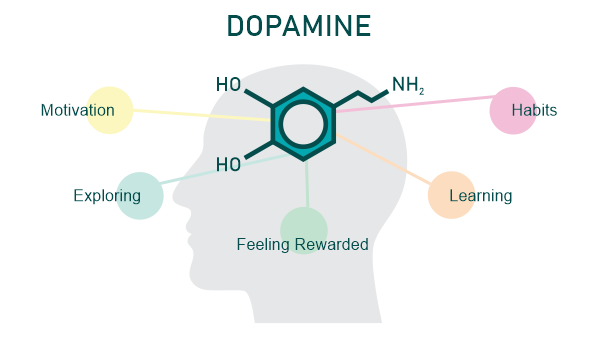Author’s Corner
Audrey Cushing, AVP Business Operations and Quality, discusses the power of asking clients the right questions.
Please click on the video to the right to learn more about the author, her motivation for writing this white paper, and the impact of positive outsourcing relationships.
To discuss this white paper in detail, please contact Audrey using the information provided at the bottom of the page.
When faced with a problem, do you immediately get to work trying to solve it? If you are like most of us, your focus is on finding answers quickly rather than spending time asking clarifying questions. Now think about problem solving in the context of outsourcing. What do you expect from your service provider when faced with a business problem? Quick answers? Probably! After all, answers resolve problems fast. Or do they?
When an outsourcing engagement is first contemplated, clients ask potential service providers scores of questions - what services do you offer? how long have you provided these services? to what organizations? and why exactly should we choose your company? The responses to these valuable questions provide the client with the peace of mind that the selected service provider will deliver the quality and outcomes required.
Once the outsourcing contract is signed, questions are still invaluable in a different way. They are the key to the relationship’s ongoing health. Service providers should now take the lead in asking questions. Lots of them! Questions lead to fresh thinking and generate new ideas. Otherwise, the engagement risks becoming stagnant over time.
At Vee Healthtek, it is our experience that questions better define problems and lead to a clearer understanding of the issues involved.
Why All the Questions?
Service providers don’t have a crystal ball to see into the future and anticipate their client’s ever changing business needs and challenges. But there is something much better: the service provider’s ability to ask questions.
Questions are a superpower many service providers haven’t learned to leverage in the quest to drive service improvement opportunities for their clients. The simple act of client inquiry provides service providers with valuable information that can be used to generate client solutions and innovation. Through the questioning process, both the service provider and the clients gain clarity as to what is really going on.
When a client communicates a challenging business problem, the service provider, wanting to please the client, acts quickly and mobilizes an internal team to problem solve. Considerable time and resources are devoted to solving what the service provider perceives to be the problem. The team is excited and eager to share their new ideas with the client. They spend hours putting together a presentation and meet with the client, only to have the solution fall flat. And even worse, the client feels misunderstood and is frustrated.
What happened? Everyone worked so hard! Did the client change their mind? Not likely. Clarifying questions were probably not asked. The problem was not fully explored before the problem-solving process started.
In a world where things are unpredictable, businesses are often faced with the unexpected. It takes time for the client to fully understand their own challenges. Questions provide a vehicle for the client to completely examine the scope of the problem before any type of solution is contemplated; thus, leading to far better solutions.
More About the Superpower
When a question is asked, an interesting process occurs; the brain starts to gather intelligence from all areas of the brain.
Pretend we are in the same room and I ask you: “What is your favorite color?” Did an image of your favorite color just pop into your mind? Probably! What just happened?
This very basic question hijacked your thought process and your focus immediately shifted to that color. Perhaps even memories associated with items of your favorite color emerged.
Questions, even simple ones, trigger a mental reflex known as “instinctive elaboration.” When faced with an inquiry, the brain generates the natural mood stabilizing hormone, serotonin. As the brain is working on an answer, it produces a chemical called dopamine. The serotonin and dopamine produce a rush of energy that stimulates the brain, creating new awareness and insights.

With this new understanding, imagine the possibilities when a service provider asks a client about business needs and challenges from a spirit of inquiry and possibility – questions that cause the client to pause and even literally stop in their tracks. The process of inquiry can dramatically change how the client frames their initial problem. These new insights can then be further explored by both parties to drive innovative solutions.
Why So Few Questions?
If questions are so powerful, what holds us back from asking them? There are several reasons: the risk of looking stupid or foolish; even our own pride. All very relatable justifications.
The lack of questioning, especially in a business context, is often due to pluralistic ignorance, the belief that one’s private thoughts are different from those of others. Specifically, it occurs when we believe one thing, but think everyone else perceives it differently. Psychologists have researched this common occurrence for years and found that instead of asking for clarification and risking looking incompetent or silly, we just pretend to understand. Remember the classic fable, “The Emperor’s New Clothes”? This is exactly what happened.
At a young age, we ask so many questions we are soon told to stop asking them. Child psychologists report the average four-year-old asks at least a hundred questions per day and, by the time that child is a teenager, the number of questions asked is drastically reduced to just a few a day or sometimes even none. As school children, we are assessed on the quality of our answers, not on inquiry skills. We enter the business world and quickly learn we are rewarded for the solutions we create, not the questions we ask. Over time, we learn how important it is to be a good problem solver – even if it means, at times, solving the wrong problem. We get so caught up in wanting to look smart, we stop asking questions.
It seems the more we know, the less we feel the need to ask, another reason we stop asking questions. Subject matter experts easily fall into the trap of relying too much on what they already know and fail to expand on their current knowledge. It takes courage to ask questions.
Questioning Is Actually Very Easy
The good news is that perfecting the art of questioning is not hard at all. First, embrace an inquiring mindset. Be curious. Take note of any biases and assumptions that impact your inquisitive approach. Leverage silence. Allow the other party to “sit with” the question. Give time for the question to be process. Let insights begin to emerge. Practice asking, “What if __?” questions to assist the other person in making connections and encouraging exploration. The goal is to understand the situation/challenge from a perspective of curiosity and interest. Let questions emerge naturally.
Warner Berger, author of the book, A More Beautiful Question, and a self-proclaimed "questionologist," defines a beautiful question as an ambitious, yet actionable question that begins to shift the way we perceive or think about something. Beautiful questions serve as the catalyst to bring about change. He reminds his readers of a powerful Albert Einstein quote: “If I had an hour to solve a problem and my life depended on the solution, I would spend the first 55 minutes determining the proper question to ask.
For once I know the proper question, I could solve the problem in less than five minutes.” Great advice for all of us, Berger suggests tobecome a better questioner take a few lessons from a “master questioner” – not Einstein or Socrates, but a four-year-old child.
The Answer: Harness the Superpower!
The act of inquiry gathers intelligence from all areas of the brain, forming new neural connections creating better insights, and evoking awareness. Questions demonstrate to clients that their service provider is fully engaged. Questions not only create a better understanding of perceived problems; they also lead to insight and innovative solutions. Service providers are under great pressure to innovate to keep pace with a client’s business challenges.
The act of questioning leads to best meeting a client’s needs. If the service provider is not taking the time to ask their client questions, they are missing a vital opportunity to understand and better meet the client’s needs. At Vee Healthtek, our client relationships never become stagnant. We harness the superpower of questioning to enhance our understanding of our client’s needs and problems, leading to extraordinary outcomes.

